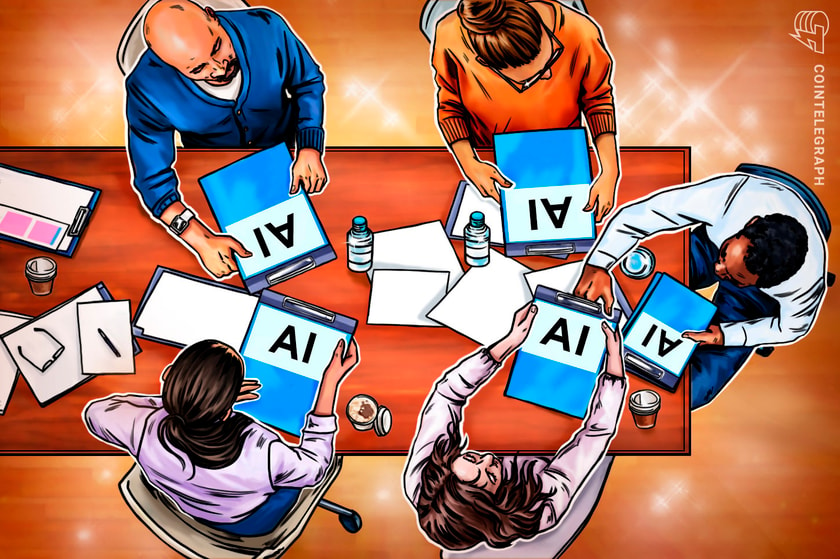Universal Music and Google in talks over deal to combat AI deep fakes: Report

Universal Music and Google are reportedly in negotiations over a tool that would allow for the creation of AI tracks using artists’ likenesses in a legal way.
Universal Music Group — one of the world’s leading music companies — and Google are in negotiations to license melodies and vocal tracks of artists to be used in songs generated by artificial intelligence (AI), according to a report from the Financial Times.
The talks have been confirmed by what the FT reports are “four people familiar with the matter.” The companies are reportedly aiming to create a partnership between the music industry and Big Tech in order to manage the rampant emergence of AI-generated deep fakes.
Mainstream AI usage has sparked concern among major music industry leaders due to the amount of “deep fakes” using musicians’ likenesses. Clips of AI-generated Drake and Kanye West began to go viral around April. Many have since been taken down.
The fact that this AI generated audio of Kanye West doing a cover of Drake’s “Hold On, We’re Going Home” sounds just like the real Kanye is scary and exciting.
The scary part: AI will never be this worst again.
Exciting part: this could unlock new doors of creativity. pic.twitter.com/u5RfmpKTcT
— Aliou Sidibe (@heyaliou) March 31, 2023
Reportedly, the discussions between the two industry giants are still in the early stages, with no impending product launch or guidelines. However, the FT sources say the goal is to develop a tool for creating tracks legally with copyrights rightly attributed.
The sources said that artists would have the right to opt in for their voices and music to be used. Another source claimed that Warner Music Group (WMG) has also been in conversation with Google regarding a similar product.
Cointelegraph reached out to WMG for further information but has not received a response.
Related: Music with AI elements can win a Grammy, Recording Academy CEO says
In April, Universal Music Group asked streaming services like Spotify to remove all AI-generated content due to copyright infringement.
A few weeks later, Spotify said it was ramping up policing of the platform and began actively taking down content in violation.
However, some artists are fully on board with their voices being used in AI-generated music. Grimes said she’s eager to be a “guinea pig” for this type of content and will split royalties 50/50 with the creators.
She also created Elf Tech, alongside a team of developers, which is her own voice simulation program available for public use.
Google and Meta have recently launched their own tools called Music LM and AudioCraft to create music and audio using generative AI.
Many in creative industries are worried about the implications of AI being used to create artistic and creative products. However, in an interview between Cointelegraph and the CEO of the Recording Academy, he said AI can be used as a “creative amplifier.”
Magazine: BitCulture: Fine art on Solana, AI music, podcast + book reviews



